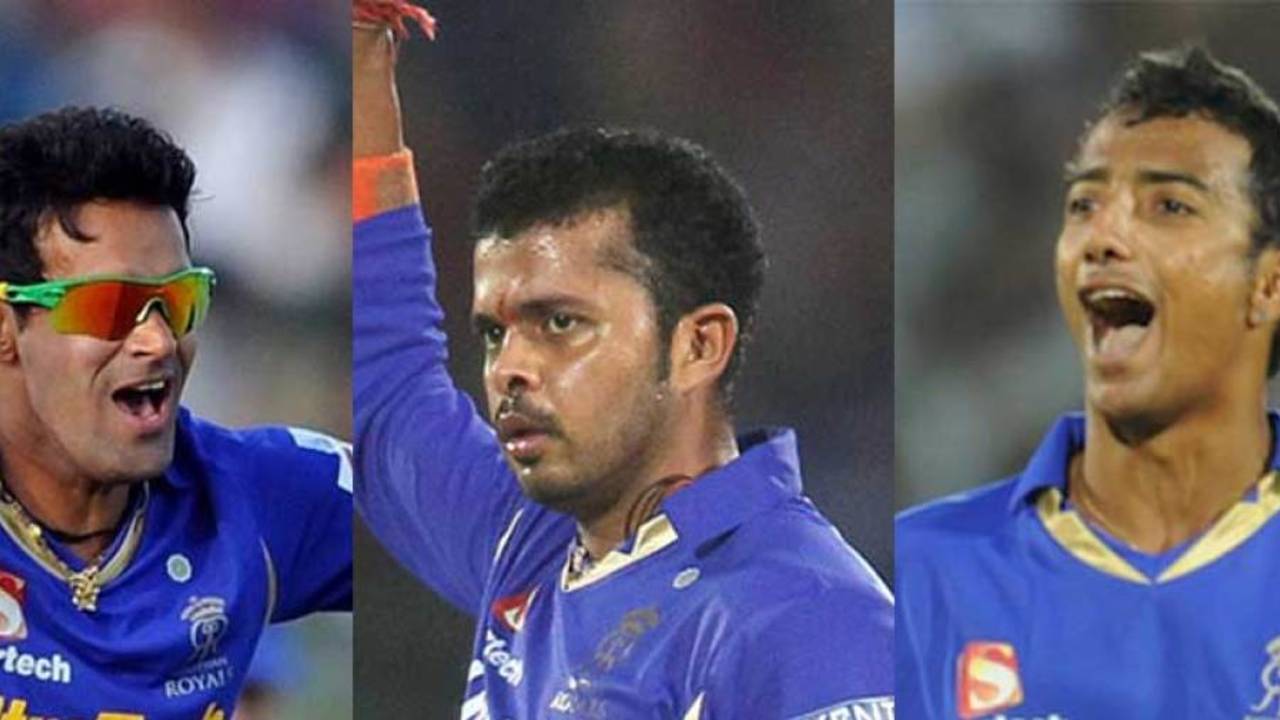Delhi Police appeals against acquittal in IPL case
The Delhi Police special cell has moved Delhi High Court to appeal against a trial court's order that let off all those accused by Delhi Police in the spot-fixing case of 2013
ESPNcricinfo staff
03-Sep-2015
Delhi Police has said the trial court had "failed" to properly appreciate the evidence before it • BCCI
The Delhi Police special cell has moved Delhi High Court to appeal against a trial court's order that let off all those accused by Delhi Police in the spot-fixing case of 2013. On July 25, the trial court had acquitted all 42 chargesheeted, including the three Rajasthan Royals cricketers Sreesanth, Ajit Chandila and Ankeet Chavan, on the basis of lack of evidence.
On Wednesday evening, Delhi Police challenged the trial court order on grounds that it had "failed" to properly appreciate the evidence before it, the Indian Express reported. The cell in its appeal has also said the trial court should not have discharged all accused at the stage of framing of charges, and should have considered all evidence after a proper trial.
The court had dismissed the case saying there was no prime facie case under Maharashtra Control of Organised Crime Act (MCOCA), the law under which Delhi Police sought sentences against those accused. Betting is not legal in India, which meant there was no prima facie victim even if the spot-fixing charges were proved, which basically means there is no provision in the Indian legal system to deal with fixing.
Delhi Police tried to get around it by filing the case under MCOCA, but the court said there was not enough evidence for charges to be framed under that act, a special law passed by the Maharashtra state government to tackle organised crime syndicates and terrorism which contains far stricter provisions relating to bail and admissibility of confessions compared to the Indian Penal Code.
The court's order had no bearing on the BCCI's sanctions on the three players. Sreesanth and Chavan remained banned for life. "Any disciplinary proceeding or decision taken by the BCCI is independent to any criminal proceeding and has no bearing," the BCCI had said in response to the trial court's order. "The decisions of the BCCI, based on its independent disciplinary action, shall remain unaltered."
